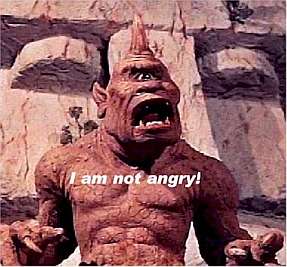This past week, I read news stories that included the following:
- Passengers applaud the removal of a sick Hispanic boy from a plane
- Illinois debates a bill that forces women to legally name the father of their children, even in the case of rape
Enough to raise your hackles, right? What an uncaring mob on that plane! What an abrogation of good ol’ American right to privacy!
What in the hell is wrong with the world today?!
Well, maybe it has something to do with this acronym:
TL;DR
In case you haven’t read enough to encounter it before (oh, the wicked irony!), TL;DR stands for Too Long; Didn’t Read.
In what may be the most spotlight a semicolon ever received, this phrase expresses the go-go, harried nature of life today. A whole lot of data and words, and not enough time to properly ponder any of it. In fact, some news sources now include a TL;DR sidebar that summarizes the whole article. With Google claiming that 2,200 words is the SEO sweet spot for authoritative articles, it seems in an age of TL;DR, we now have even more content we’re reading even less.
And the less we’re reading is cheesing us off to no end.
 Really, is it just me, or is everyone in a pissy mood?
Really, is it just me, or is everyone in a pissy mood?
Maybe this will make you more angry than you already are, but the headlines on those two articles up top are both lies. Sort of.
Clickbait is a term used to describe any headline or story phrased in such a way to suck people in. Given the overflow of info available, crafting a headline that grabs people is the difference between read-filed and dead-filed. No point in writing what people don’t read, no matter how stupendous the content might be. In an age of social media, some people read no further than that grabby headline.
The problem: Too many clickbaity headlines get written to purposefully rile. Write something that appeals to anger, and voila! Click, click, click.
About those two articles above…
Anyone who followed up on the awful, discriminatory, uncaring crowd aboard that plane later found that almost no one on the plane knew the boy was having a medical emergency. All they knew is that they were sitting on the tarmac for hours, missing connections and generally not getting where they needed to go. It wasn’t about the boy, his emergency, or his ethnicity at all. People didn’t applaud the boy’s exit; they applauded because an unknown delay finally got resolved and they could take off.
But a plane finally departing after a couple hours doesn’t make a story. Decrying fellow humans for prejudice and heartlessness–real or imagined–does.
Likewise, after castigating the bill proposer in the Illinois “name the father or else” story, a paragraph near the end states that the bill had been sponsored in an effort to help single mothers collect on deadbeat and absent fathers. It wasn’t a Nazi-like effort to embarass women but a means to help curtail the epidemic of fathers who inseminate, bolt, and let their partners and kids fend for themselves.
But that’s not at all what the headline implies.
What’s even more galling than these twisted headlines that hint at a different truth than the actuality just to entice people? That online news today enables instant editing and retraction. News organizations may alter headlines repeatedly to test which ones draw more people. Increasingly, articles also receive edits in real time, which means the story you read an hour ago may not have the same content an hour later.
The upshot: Media sources play emotional games with us, fostering anger where little or no anger should exist.
What does this mean for Christians?
Love, joy, peace, patience, kindness, goodness, faithfulness, gentleness, and self-control.
Those are the fruits of the Holy Spirit in the life of the believer in Jesus. The Lord Himself said that these traits distinguish someone who knows God from someone who does not. Their presence marks regenerated and saved believers, while their absence proves who is unregenerated and damned.
Right now in America, a lot of angry, hostile “Christians” are changing the future of this country for the worse. We see them online fighting, cursing, and calling others names. They throw support behind people who show no evidence of the fruit of the Spirit, and in their own dealings with others, they show evidence for all the traits opposite that fruit. They weep and gnash their teeth. Their general horribleness toward their fellow man makes the Baby Jesus cry.
And they may be you and me.
Media clickbait, purposefully twisted news headlines, and stories written to highlight the worst lies rather than the best truths are contributing to the social decrepitude of many. We’re all becoming worse people because we have a permanent chip on our shoulders and a stoked need to lash out at evil and enemies.
But are we adding to evil and becoming enemies of God as a result?
What does it mean when someone who claims to be Christian instead maintains an angry, hostile, permanently livid persona, especially online or in dealing with other people? Where are the fruits of the Spirit by which genuine believers must be known?
I can’t tell anyone how to live. Yet when I see what this suspect news fosters and note what it’s doing to people, I wonder if it’s best for Christians to start pulling back from media consumption.
Because what does it all profit us to engage information if we lose our souls in the process?
 This blog has been in operation since 2003. That’s a long time. And in that time, much has been weathered.
This blog has been in operation since 2003. That’s a long time. And in that time, much has been weathered.
 Really, is it just me, or is everyone in a pissy mood?
Really, is it just me, or is everyone in a pissy mood?